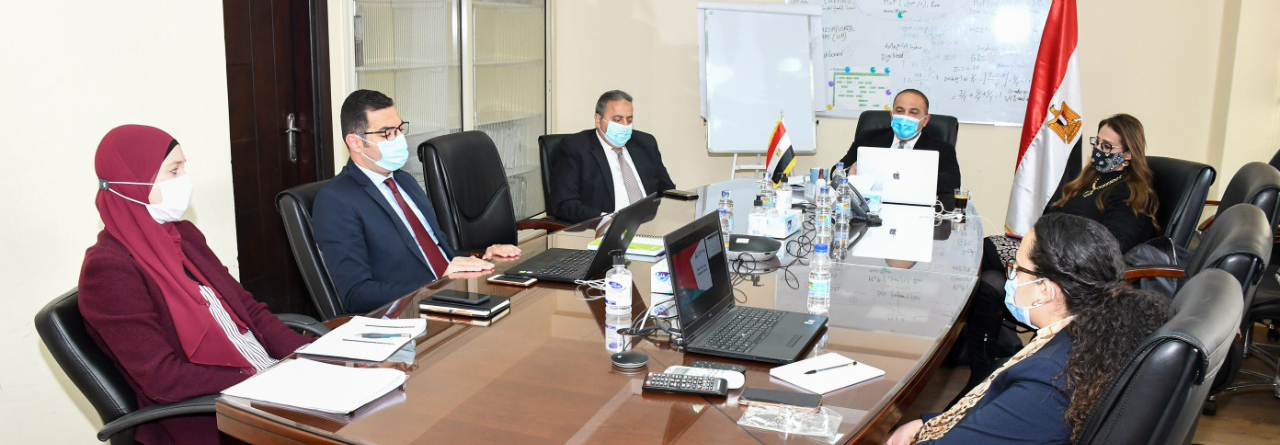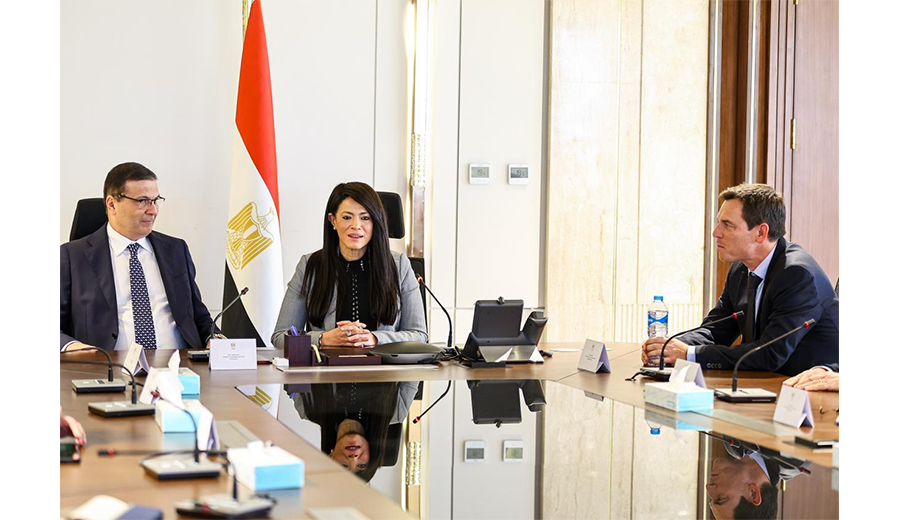Details of the first meeting of the National Committee to follow up on the 2030 SDGs

09 February 2021
The Technical Secretariat of the National Committee for the Follow-up of the 2030 Sustainable Development Goals at the Ministry of Planning held its first meeting headed by Dr. Ahmed Kamali, Deputy Minister of Planning, and in the presence of Dr. Jihan Saleh, Economic Advisor to the Prime Minister, Ambassador Omar Abu Al-Aish, Assistant Minister of Foreign Affairs for Economic Affairs, and Dr. Mona Essam Head of the Sustainable Development Unit at the Ministry of Planning, representatives of ministries and relevant authorities.
Dr. Ahmed Kamali pointed out that in January 2018, the Ministry of Planning and Economic Development started updating the sustainable development strategy due to several main reasons, explaining that a community dialogue on Egypt’s Vision 2030 had been scheduled to be held starting from June 2020, yet the repercussions of the Coronavirus pandemic and the consequential changes that covered all aspects of life necessitated a review of the strategy and its component and its updated version.Dr. Kamali continued that the changes that have emerged in the modernization process are the negative repercussions of the spread of the Coronavirus pandemic at all national and global levels.
On the methodology for modernizing Egypt’s Vision 2030, Kamali reviewed the role of the Sustainable Development Unit at the Ministry of Planning and Economic Development, which worked on forming 28 working groups in the field of sustainable development in all ministries, holding 60 workshops with various ministries and agencies, and developing 28 sectorial working papers.
Dr. Ahmed Kamali emphasized Egypt's keenness to localize the SDGs, noting that the Ministry of Planning, in cooperation with the United Nations Population Fund, prepared reports on the localization of the SDGs at the level of all Egyptian governorates, by preparing a report for each governorate.
Kamali drew attention to the disparity in the level of progress in achieving the sustainable development goals among the different governorates, and what this disparity creates in terms of "development gaps".
The report also clarifies the development situation of the governorate and the quantitative targets for several sustainable development goals indicators up to 2030, and then the indicators that must be focused on.
Kamali pointed out that the reports of the localization of the sustainable development goals confirm the principle of leaving no one behind, in addition to its role in defining and updating the values of the indicators of the sustainable development goals, and following up on the implementation of these goals in all governorates, as well as comparing what each governorate has already achieved in the framework of implementing SDGs.
Kamali explained that each report is divided into several parts, including reviewing the most important data for each governorate in terms of population, area, in addition to reviewing the UN sustainable development goals and their indicators, and the level of performance of each governorate in achieving the 2030 targets.
The report also includes a summary of those goals and indicators, and the most important recommendations proposed to reduce the gap between current implementation rates and target rates.The Sustainable Development Unit at the Ministry of Planning and Economic Development reviewed the data on the sustainable development goals and their indicators in the governorates, it also reviewed the formulation of the reports and the recommendations they contained.Kamali stressed that the Ministry seeks to represent these reports as the nucleus of a continuous effort aimed at publishing these reports periodically while including a greater number of sustainable development goals to more accurately follow the process of localizing the sustainable development goals.
On the index of competitiveness of the Egyptian governorates, Dr. Ahmed Kamali explained that the concept of competitiveness of the governorates is the ability of the province to contribute to sustainable and inclusive growth, increase productivity and provide a suitable environment for investment, and thus provide an adequate standard of living for the citizen.
The Global Competitiveness Index is one of the most important global economic indicators.Moreover, improving Egypt's standing in this index, which suffered a setback from 2011 to 2016, is also one of the main goals of the Egyptian government. Therefore, improving the competitive position of the governorates focuses on the indicator at the national level.The main objectives of the index also included motivating governorates to improve their competitive performance by creating a positive competitive environment to encourage investment, create job opportunities and expand the productive base, which is reflected in the competitive position of each governorate and then on the national level.
On what has been achieved regarding the Governorates Competitiveness Index, Kamali explained that the institutional framework for the initiative has been established through the signing of a memorandum of understanding between the Ministry of Planning and the Information and Decision Support Center in the Cabinet.
Kamali referred to the formation of a technical committee from the participating authorities to work on designing the index by reviewing 27 international experiences in measuring regional competitiveness, and reviewing the most important competitiveness indicators used internationally, the most important of which are the global competitiveness index, business environment index, human development index, quality of life index, index the government.Kamali said that an economic advisor has been appointed to support the technical committee in preparing the methodological framework for the index by defining a preliminary concept for the index and holding five workshops with experts to discuss the concept of competitiveness, the issues of the index, and the sub-indicators.
Regarding the results of the work, Kamali explained that 82 sub-indicators have been installed, of which 32 indicators will be measured through documented data, 50 indicators will be collected data through surveys, and a report has been prepared that includes details of the methodology for preparing the indicator.
About what is expected to be implemented in the next phase, Kamali referred to conducting a field survey, collecting office data, measuring the index and writing the report, and adopting the indicator from an international organization, while establishing a website for the indicator.









